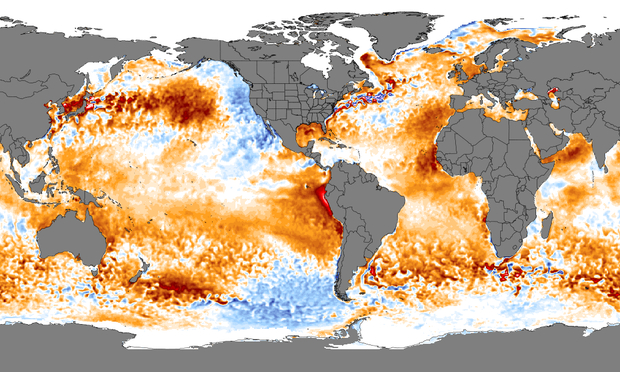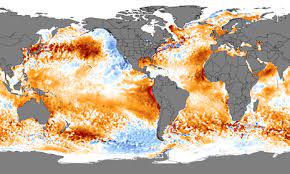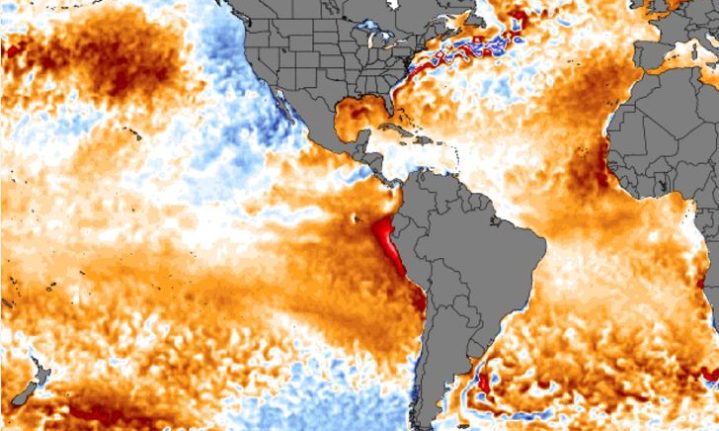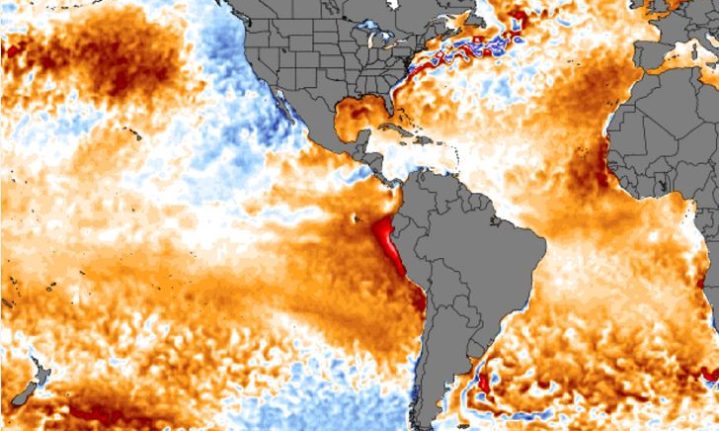Ocean surface temperatures are at a record high, leading to marine heatwaves in northwest Africa and worldwide that could harm marine wildlife and cause coral bleaching on tropical reefs and extreme weather conditions.
Data from the US government showed the ocean’s average surface temperature has been at 21.1°C since the start of April.

A global map using data from the National Oceanic and Atmospheric Administration showing areas of orange and red where temperatures have been above the long-term average. Photograph: University of Maine
This has been caused by rising greenhouse gasses in the atmosphere generated by burning fossil fuels and deforestation. The ocean absorbs 90% of this heat.
A three-year period of cooling in the central and eastern tropical Pacific called La Niña was helping cool down global temperatures despite increasing greenhouse gasses, but that’s unfortunately come to an end.
Heat is now rising to the ocean surface, indicating a potential El Niño pattern – when temperatures in the region are warmer than usual – this year that could increase the likelihood of extreme weather conditions and cause global heat records to soar.
Data the US National Oceanic and Atmospheric Administration (NOAA) gathered showed the second-hottest globally averaged ocean temperatures occurred at the same time as El Niño between 2014 and 2016.
According to Dr Kevin Trenberth, a climate scientist and distinguished scholar at the US National Center, when salt water expands as it warms, it could push up global sea levels, provide more energy for storms and put ice sheets at risk and cause marine heatwaves.
Dr Alex Sen Gupta is an associate professor at the UNSW Climate Change Research Centre and part of an international team of scientists observing marine heatwaves, which his group defines as an area of the ocean where temperatures are in the top 10% ever recorded for that time of year for at least five days straight.
He said his team’s current observations are unusual: extreme marine heatwaves simultaneously in several regions, including the southern Indian Ocean, the south Atlantic, off northwest Africa, around New Zealand, off the northeast of Australia and the west of Central America.




















